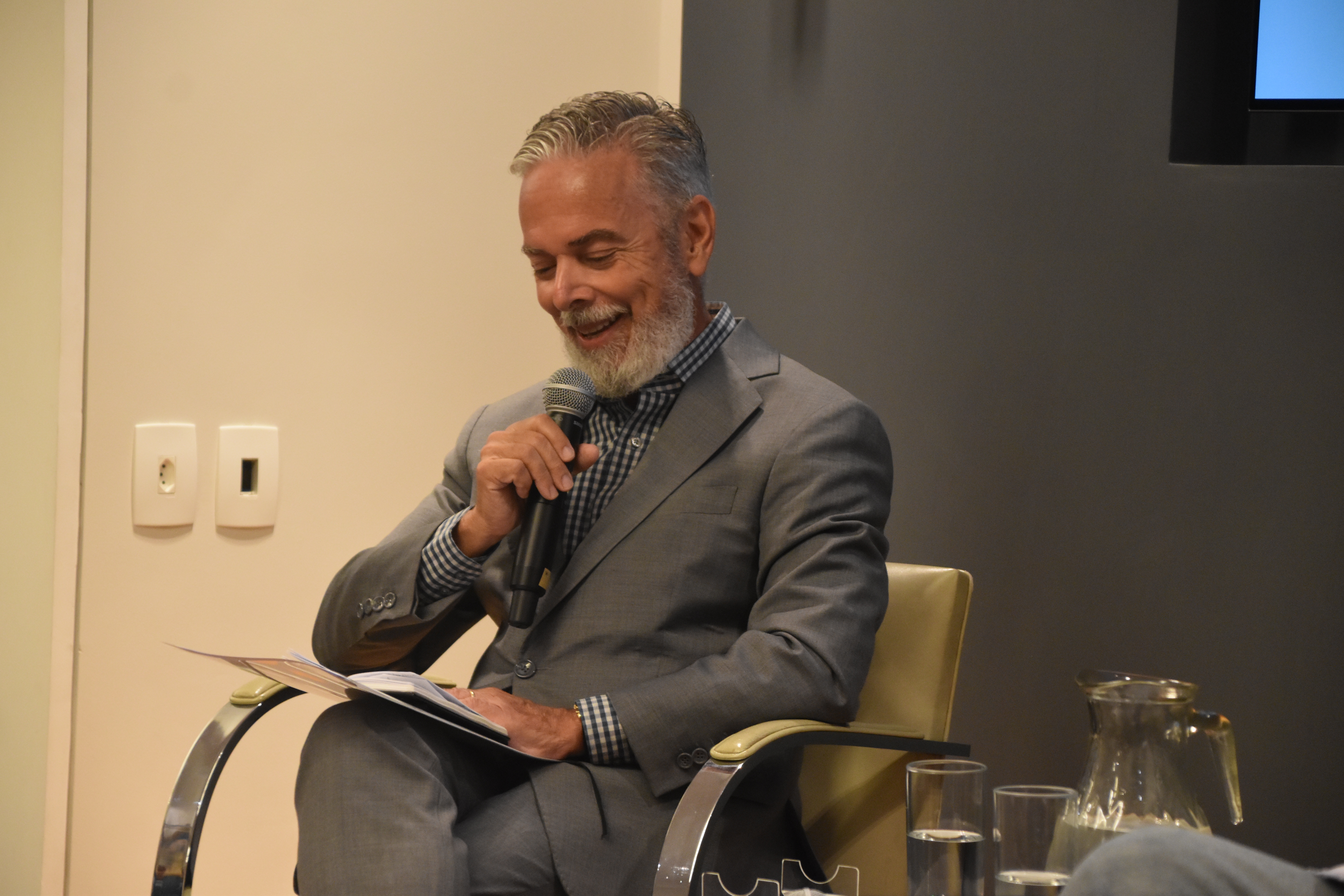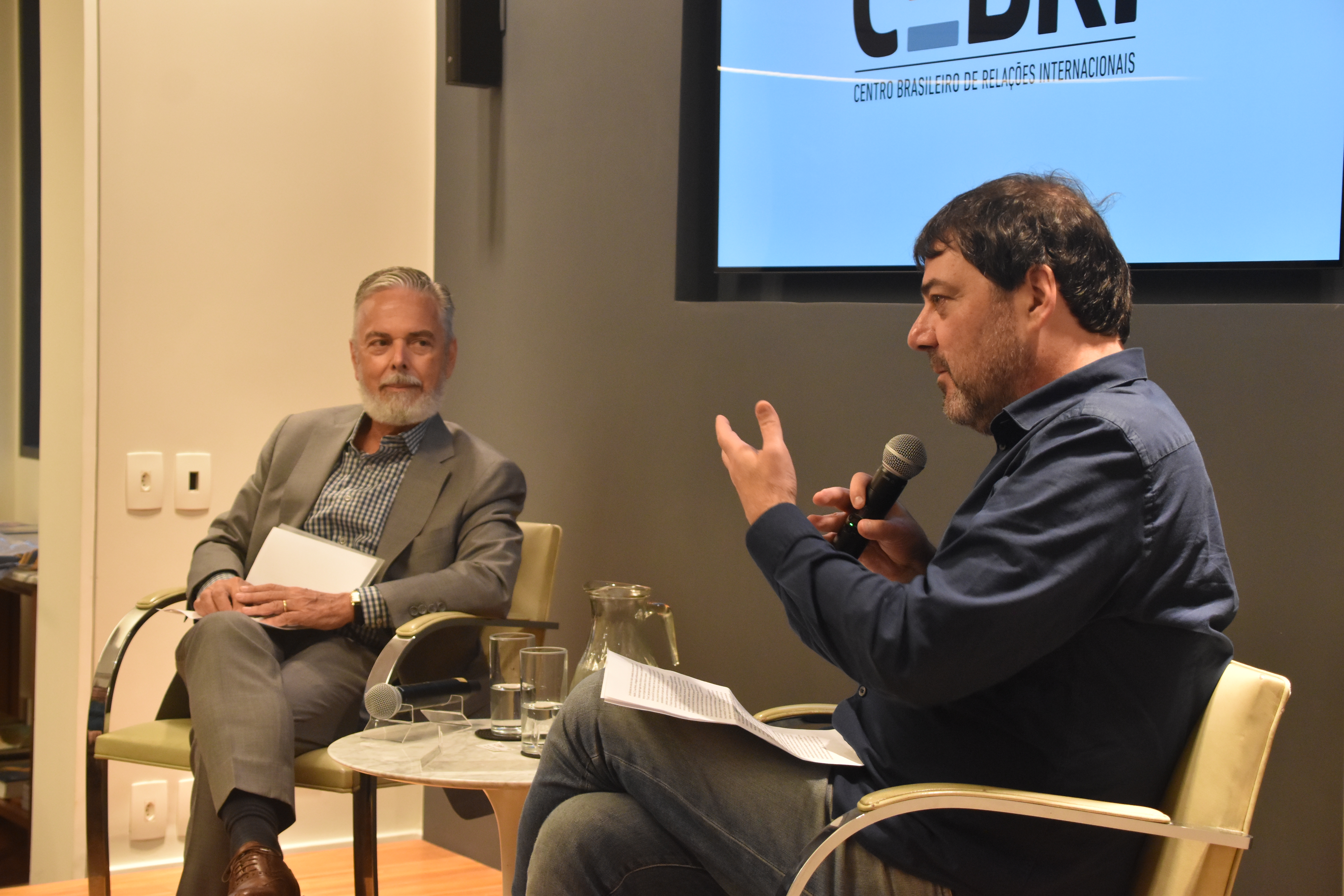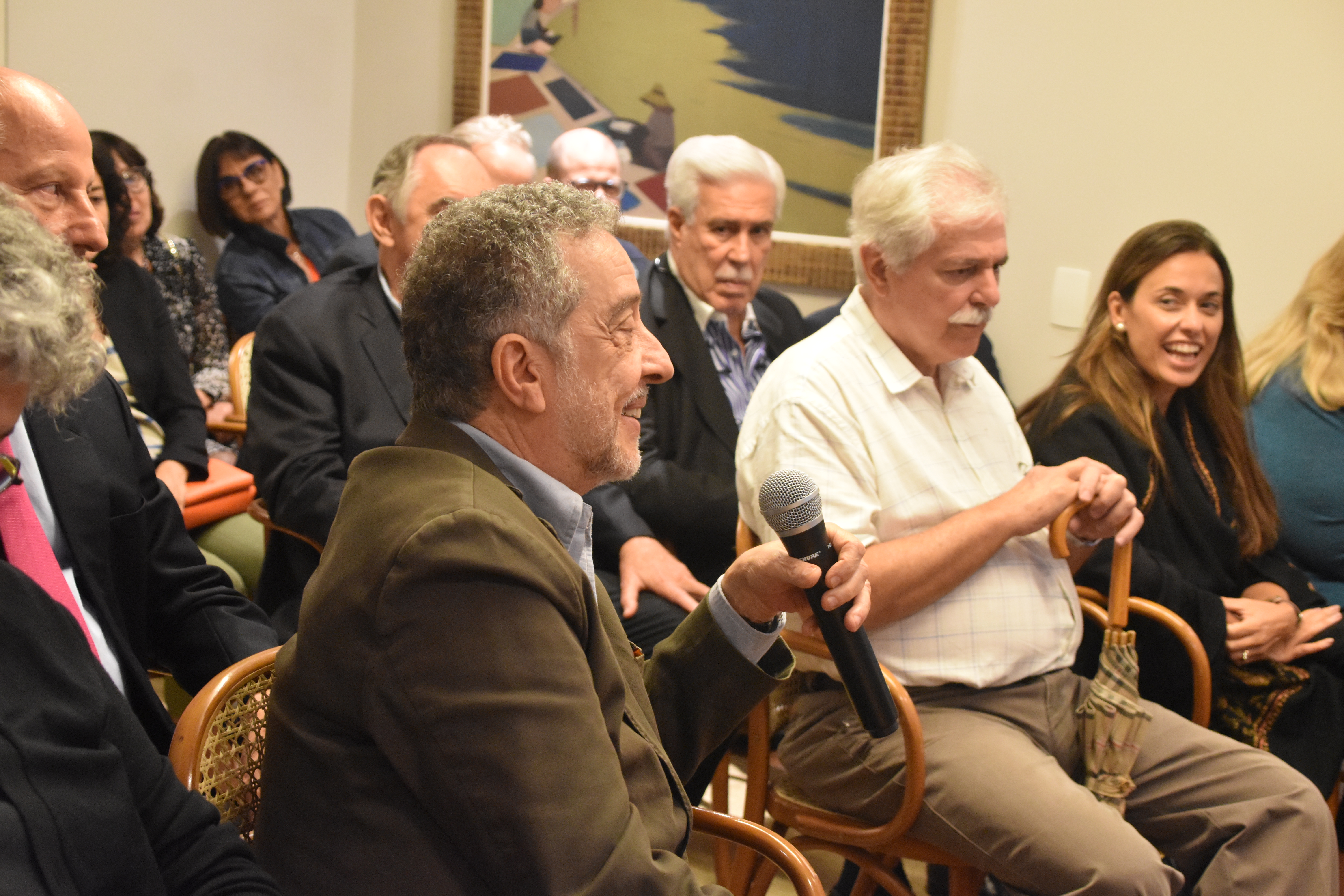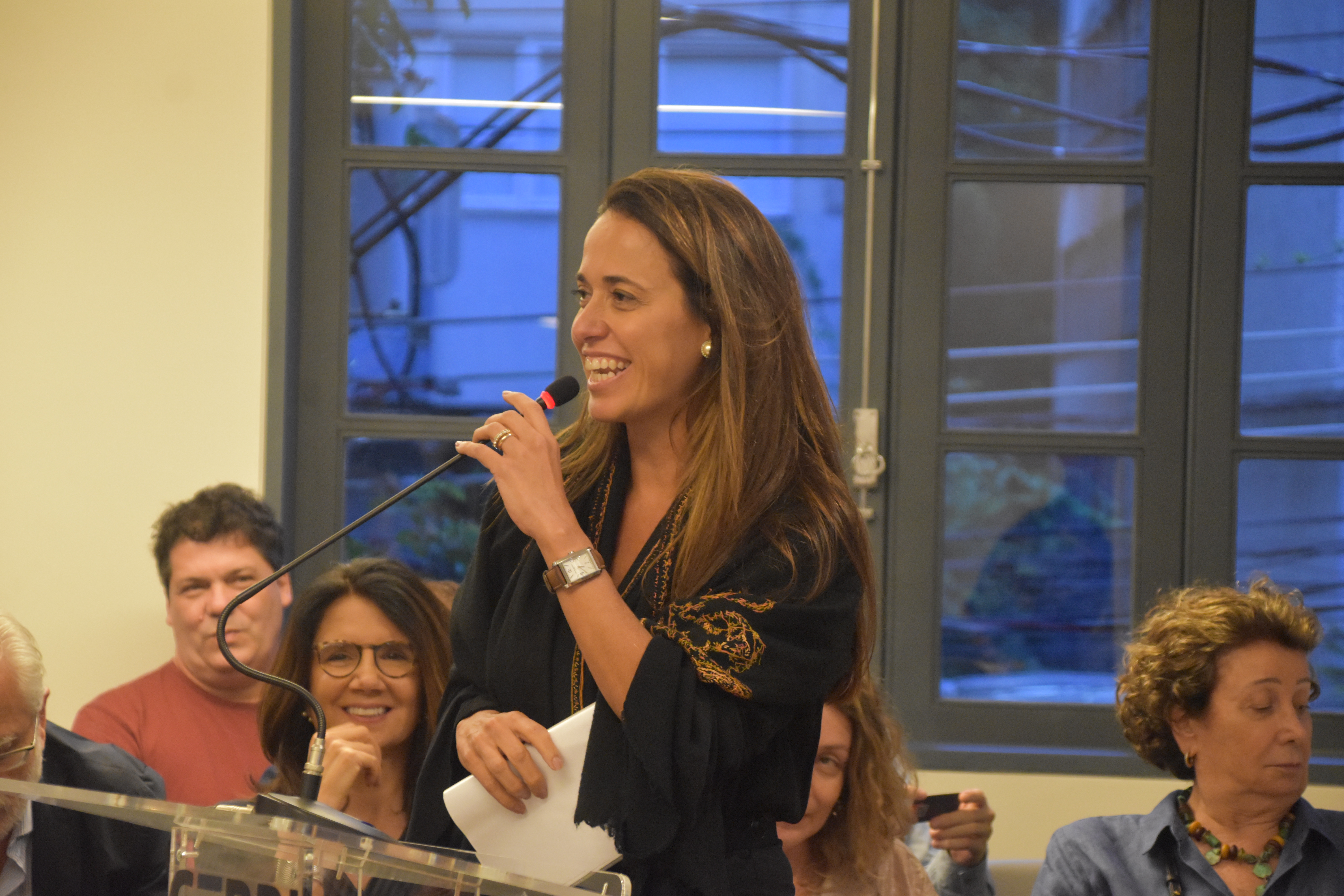Ambassador Antonio Patriota discusses diplomacy and music at CEBRI
- Institutional
- 11 january 2023
On Monday afternoon (1/9), at the Brazilian Center for International Relations (CEBRI), Brazil's Ambassador to Egypt, Antonio Patriota, spoke to Hugo Sukman, journalist and music critic, about his new album "Estuário" (Estuary). The album features 11 new compositions produced by musician Léo Gandelman. Patriota spoke to a select audience of ambassadors and international relations experts about his musical career and how he transits between the worlds of diplomacy and music. The Ambassador is part of CEBRI's Multilateralism Program and is a member of CEBRI's International Advisory Board. He recently wrote an article for CEBRI-Journal - CEBRI's academic and policy-oriented journal - addressing the democratization of international relations. Read it HERE.
According to Ambassador Patriota, Gandelman was fundamental to his development as a musician and encouraged him throughout the album's recording process. Ambassador Patriota revealed that the course of Brazilian foreign policy in recent years had brought him much grief and dismay. Music – an essential element of Brazilian soft power – brought him comfort, new vigor, and hope for his personal and professional life.
"Music has shown me a new world; it has rejuvenated me and brought me immense joy!" said Patriota. He repeated that Brazil has two powerful instruments of soft power – music and soccer – and the country must develop them to their fullest to regain its international protagonism. "The areas in which Brazil stands out the most abroad are music and sports, especially soccer. These are areas to which access is more democratic and which should be further promoted and valued," he assesses.
Recently, Ambassador Maria Laura Rocha was appointed Secretary-General of Foreign Affairs, the first-ever woman, first black Secretary-General in Itamaraty. According to Patriota, this decision showed the new government's faith in a kind of diplomacy that better reflects Brazilian society, seeking to strengthen the credibility of democratization in international relations and its message.




